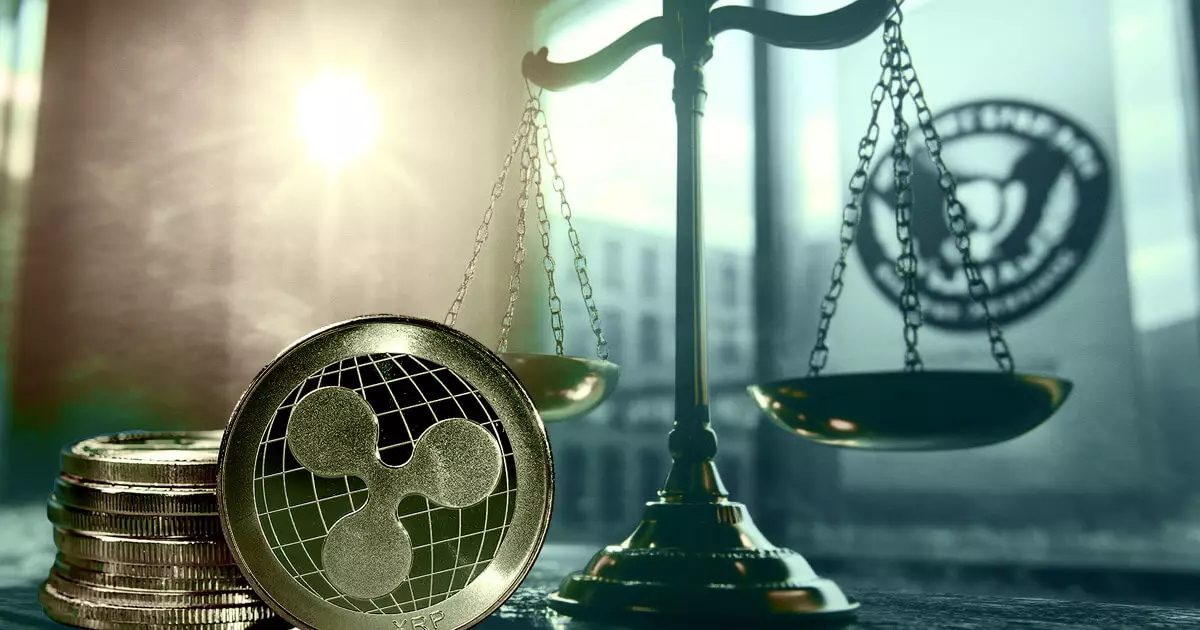In the ever-evolving landscape of cryptocurrency regulation, the legal battles between Ripple Labs and the U.S. Securities and Exchange Commission (SEC) have drawn significant attention. The recent filing of the SEC’s Civil Appeal Pre-argument statement has sparked discussions within both legal and cryptocurrency communities. This article delves into the nuances of the latest developments in this high-profile case, examining the implications for Ripple, the broader cryptocurrency market, and regulatory practices in the United States.
The SEC’s recent actions underscore the ongoing complexities of defining cryptocurrency within the scope of U.S. securities laws. On October 17, 2023, the commission submitted a crucial Form C to the U.S. Court of Appeals for the Second Circuit, highlighting its intention to appeal specific elements of Judge Analisa Torres’s earlier ruling. While the judge’s decision last year was partially favorable to Ripple, affirming that XRP sales to retail investors on exchanges did not constitute violations of securities laws, the SEC’s current appeal challenges different aspects of the ruling.
Notably, the SEC is not contesting Judge Torres’s favorable stance on XRP’s retail sales. Instead, the focus shifts to Ripple’s programmatic sales of XRP on trading platforms, as well as transactions involving distribution to employees and affiliates. This selective appeal strategy raises pertinent questions about the SEC’s stance on the regulatory classification of digital assets and hints at a broader agenda to clarify these classifications within a legal framework.
A central component of the SEC’s appeal involves seeking a “de novo” review, which entails the appellate court reassessing legal questions without deferring to the initial ruling. This avenue not only indicates the SEC’s determination to pursue stricter accountability for Ripple’s practices but also targets Ripple executives Brad Garlinghouse and Chris Larsen. Allegations of aiding and abetting XRP transactions on digital platforms suggest a tactical shift in the SEC’s approach, as regulatory bodies increasingly focus on the role of company leadership in compliance issues.
The implications of this appeal could reverberate beyond Ripple itself. Should the appellate court rule against Ripple executives, it could set a precedent that may subject other leaders in the cryptocurrency sector to greater scrutiny, thereby influencing corporate governance strategies within the industry.
In the face of an escalating legal battle, Ripple’s Chief Legal Officer, Stuart Alderoty, has maintained a tone of confidence. His assertion that the ruling deeming XRP as not a security remains unchallenged echoes a broader sentiment of resilience within Ripple. This attitude is vital for maintaining investor confidence and navigating the regulatory landscape. Moreover, Alderoty revealed Ripple’s intention to file a cross-appeal, highlighting the company’s commitment to contesting the aspects of the ruling perceived as unfavorable.
This proactive strategy demonstrates Ripple’s understanding of the high stakes involved. Navigating regulatory frameworks is critical for any cryptocurrency entity, and Ripple’s actions could be interpreted as not merely reacting to the SEC’s challenges but actively shaping its legal narrative within the industry.
The Ripple-SEC saga extends beyond a single company’s legal struggles. It emphasizes the urgent need for clearer guidelines regarding cryptocurrency regulation. The ambiguity surrounding the classification of digital assets fosters uncertainty, making it challenging for companies to operate with confidence. As this legal battle progresses, it may catalyze much-needed discussions among regulators, industry stakeholders, and lawmakers in pursuit of comprehensive regulations that balance innovation with compliance.
Additionally, the outcome of this case could reverberate through the cryptocurrency market at large. Positive resolution for Ripple may embolden other companies facing similar predicaments, while adverse outcomes could precipitate a reassessment of sales practices across the industry.
The ongoing legal confrontation between Ripple and the SEC encapsulates the intricate dance between innovation and regulation within the burgeoning cryptocurrency space. As both parties prepare for their next steps, the implications of their actions are poised to shape not only the futures of Ripple and its executives but potentially the entire landscape of cryptocurrency regulation in the United States.















